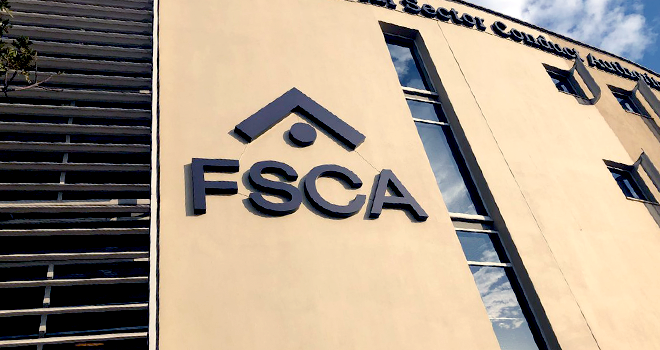The Financial Sector Conduct Authority (FSCA) has identified a recurring trend where financial services providers fail to comply with section 11(2) of the FAIS Act and/or abuse section 11(1)(d) of the FAIS Act by voluntarily surrendering licences in an attempt to avoid compliance with provisions of the FAIS Act (especially the General Code of Conduct for Authorised Financial Services Providers and Representatives, 2003) and/or administrative actions. In response to this, the FSCA issued a Guidance Notice to clarify the requirements..
According to Section 11 of the FAIS Act, a license will be lapsed where:
| ● | a sole proprietor can no longer carry on doing business due to physical or mental disease, serious injury, death or the fact that they have been finally sequestrated; |
| ● | a FSP is finally liquidated or dissolved; |
| ● | where the business of a FSP has become dormant; |
| ● | and any other case where the FSP or sole proprietor voluntarily cancels their license |
In all of the above scenarios a written lapse request must be submitted wherein the Authority is notified of the event that occurred which has resulted in the license having to be lapsed – the license will not be lapsed automatically.
Further requirements in respect of the lapsing of a licence
| 1. | Informing clients and product suppliers: Section 20 (b) of the General Code states that “…a provider, other than a representative who ceases to operate as such, must immediately notify all affected clients accordingly and take, where reasonably necessary or appropriate in consultation with he clients and product suppliers concerned, reasonable steps to ensure that any outstanding business is completed promptly or transferred to another provider…” |
|
| 2. | Proof of compliance required: The Authority may also require proof of compliance with the requirements of the General Code upon receipt of a notification of the lapsing of a licence. |
|
| 3. | Voluntary closure of business: Section 38(d) of the FAIS Act states –“No – (d) voluntary closure of business by, any authorised financial services provider, or representative of such provider, and no special resolution in terms of the constitution of such a provider or representative which is not a company, to close its business, have legal force – |
|
| (i) | unless a copy or notice thereof has been lodged with the Authority and the Authority has, by notice to the provider or representative concerned, as the case may be, declared that arrangements satisfactory to the Authority have been made to meet all liabilities under transactions entered into with clients prior to sequestration, winding-up or closure, as the case may be; or | |
| (ii) | if the Authority, by notice to the provider or representative concerned, as the case may be, declares that the application, resolution or closure, as the case may be, is contrary to this Act.” | |
”… section 38(d)(ii) of the FAIS Act states that the closure of the business of an FSP will not have legal force if the Authority declares such closure as contrary to the FAIS Act. Attempts to avoid possible consequences of intended administrative action and any obligation under the FAIS Act are examples of the closure of business contrary to the FAIS Act.”
The FSCA also pointed out that that if the lapsing of a licence is valid, but there has been non-compliance with a provision of the FAIS Act (e.g. section 11(2) of the FAIS Act or section 20(b) of the General Code), the Authority may still take administrative action in respect of such non-compliance by imposing an administrative penalty or issuing a directive.
The surest way of navigating this tricky exit is, of course, to have a solid succession plan in place. For your sake, and that of your clients.
Click here to download the guidance notice.
Moonstone Compliance and Risk Management offers a licensing service to FSPs – click here for more information.



